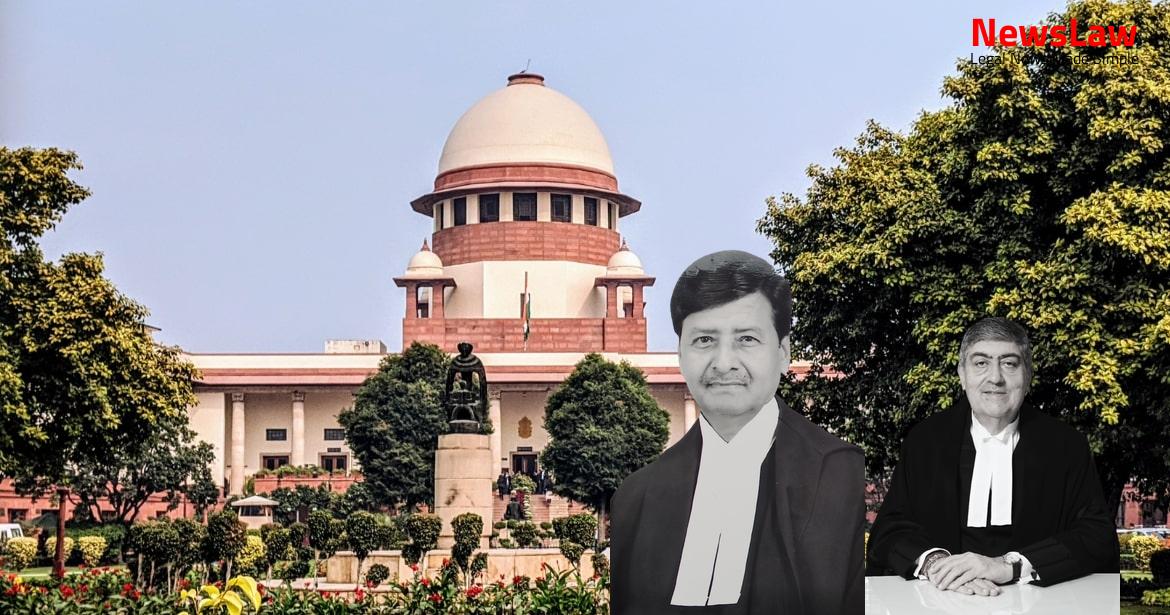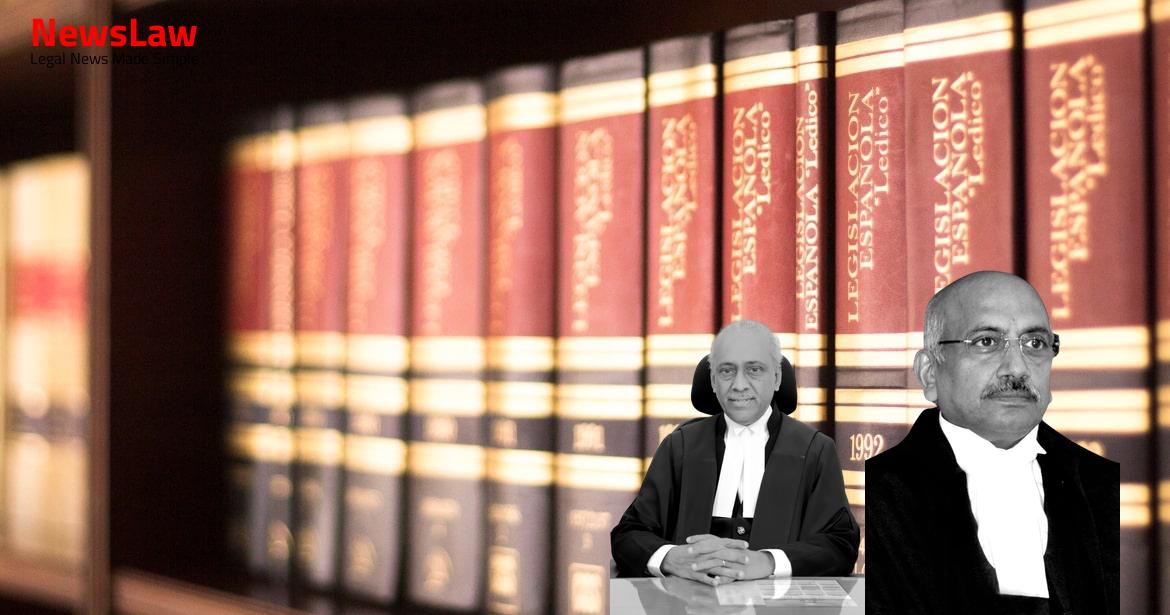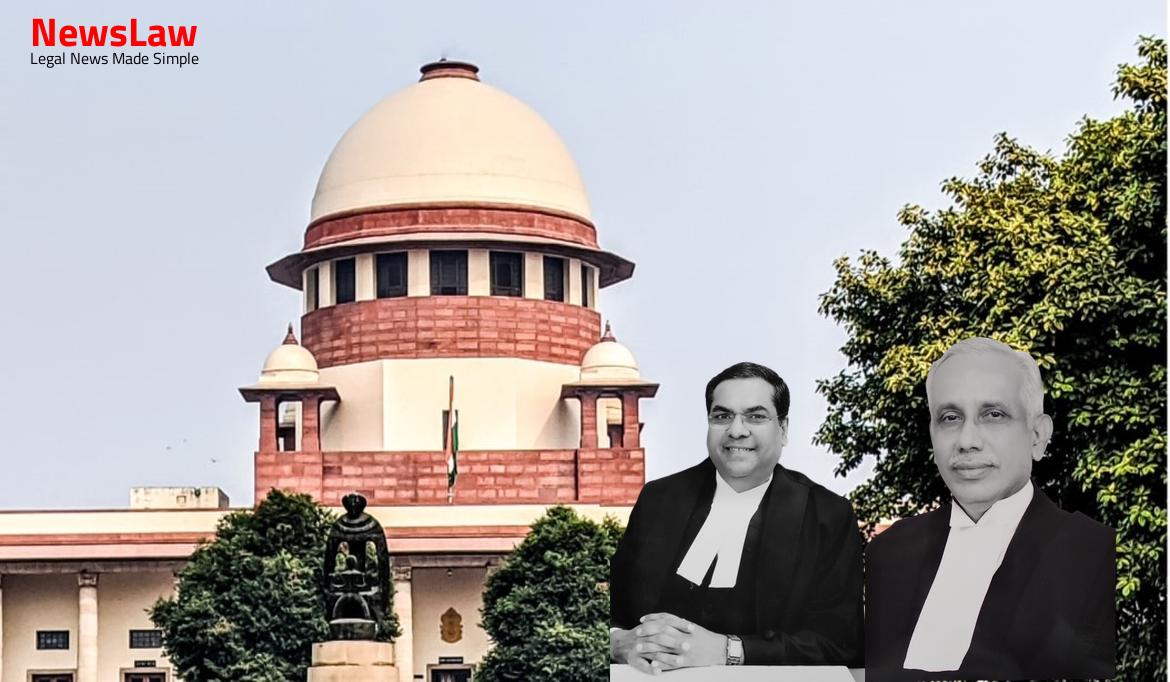In a recent legal case, the court delved into the significance of procedural safeguards in the context of departmental proceedings. The analysis focused on the role of the Central Vigilance Commission, the necessity of CVO advice in vigilance cases, and the implications of procedural lapses on disciplinary actions. The court’s thorough examination underscores the criticality of adhering to procedural norms to ensure fair and just outcomes in administrative matters.
Facts
- Respondent joined Department of Posts in 1991 and was promoted to Assistant Superintendent of Posts in 2008.
- Validity of Memo challenged on grounds of lack of CVO advice, vagueness, and delay in proceedings.
- Respondent filed SLP(C) No.9571 of 2017 in Court.
- Contempt proceedings stayed pending leave granted on 29.10.2020.
- Departmental proceeding concluded with adverse report in 2017 Memo.
- The respondent faced compulsory retirement as a punishment, which was deemed harsh and disproportionate.
- The charges against the respondent were mainly procedural lapses, not bribery.
- The order to impose a minor penalty instead of compulsory retirement was given within 8 weeks.
- Both parties challenged the order in the High Court of Andhra Pradesh through Writ Petitions.
- The respondent claimed lack of opportunity to produce documents and witnesses, but procedural lapses were established based on admissions and explanations.
- The Tribunal verdict was given on 27.02.2019, attributing delays to the respondent’s appeals and petitions alleging bias.
- The High Court allowed the respondent’s writ petition, setting aside the direction for minor penalty imposition.
- The Circular did not mandate CVO approval before the memo issuance, according to the High Court judgement.
- The distinction between vigilance and non-vigilance cases, as well as Rule 12 of the Postal Manual, were key points considered by the High Court.
- The respondent initiated further legal actions, including OA No 344 of 2017 and Writ Petition No 42546 of 2016, citing non-compliance with the Circular.
- The Tribunal determined that the lack of CVO referral did not prejudice the respondent, given the unproven bribery charges.
- Prior approval of CVO was previously addressed in O.A. No 861 of 2013 as a safeguard against dropping inquiry proceedings on false grounds.
Also Read: Supreme Court Judgment on Single Till Mechanism for HRAB Calculation: A Comprehensive Analysis
Arguments
- The Addl. Solicitor General argued that there was no mandatory requirement to obtain CVO’s advice before initiating disciplinary proceedings.
- He stated that this procedural requirement was specific to vigilance cases only.
- The respondent, appearing in-person, contended that the Circular was statutory as it was issued under the authority of the Central Vigilance Commission.
- Reliance was placed on a previous judgment where a similar circular from the CVC was considered.
- It was argued that the key test was whether the lack of CVC advice caused any prejudice to the employee.
- It was also asserted that even if this requirement was not met, it would not invalidate the entire proceedings.
- The respondent emphasized that administrative rules, regulations, and instructions do not carry statutory force or confer legal rights.
- Ultimately, it was concluded that no prejudice had been caused in the case being discussed.
Analysis
- Procedural safeguards are crucial to prevent arbitrary exercise of power.
- Violation of procedural safeguards does not automatically vitiate departmental proceedings.
- The Central Vigilance Commission plays a key role in advising on cases with vigilance angles.
- CVO’s advice is necessary in cases of difference of opinion between disciplinary authority and CVO.
- Heads of Circles must strictly comply with the procedures outlined by the CVC.
- Tribunal’s role is to examine disproportionality of punishment, not to substitute disciplinary authority’s findings.
- Disproportionality of punishment is a concept recognized in service jurisprudence.
- In this case, the punishment of compulsory retirement was deemed harsh and disproportionate.
- Negligence on the part of the respondent in performing duties was evident.
- Challenges by the respondent in judicial forums prolonged the proceedings.
- Procedural lapses against the respondent led to the decision of a minor penalty over a major penalty.
- The nature of charges did not warrant a major penalty, as there were no bribery charges involved.
- Mistakes should not result in unduly harsh consequences.
- The Tribunal’s direction for an appropriate minor penalty was considered correct.
- The Tribunal did not impose the punishment but left it to the concerned authority.
- It is important to acknowledge that anyone can make mistakes.
Also Read: Selection and Appointment of Judicial Officers in Himachal Pradesh
Decision
- High Court judgment set aside and Tribunal’s judgment restored.
- Appellants directed to comply with Tribunal’s order within 8 weeks and provide all consequential benefits to the respondent.
- Appeals allowed with each party bearing their own costs.
- Hope for resolution of the long-standing service dispute, spanning nearly a decade.
Case Title: UNION OF INDIA Vs. P. BALASUBRAHMANAYAM (2021 INSC 151)
Case Number: C.A. No.-003592-003593 / 2020



